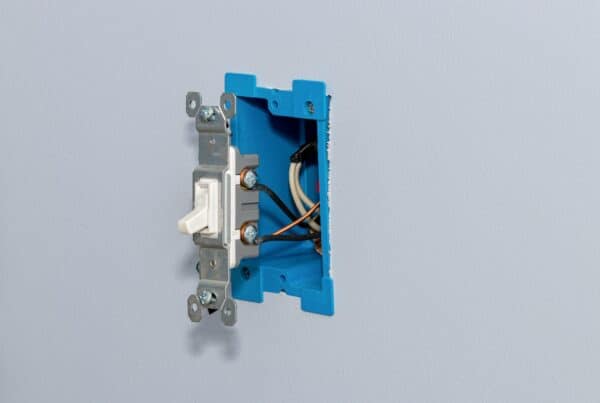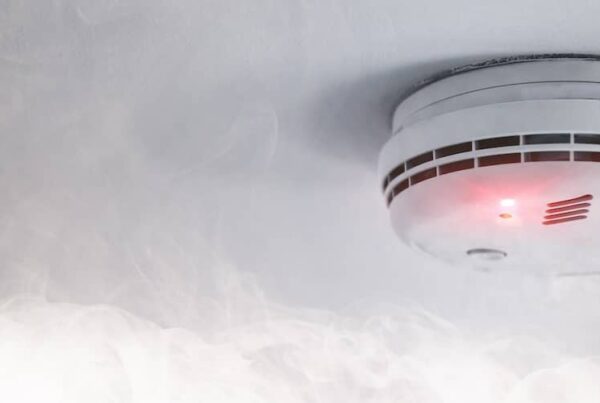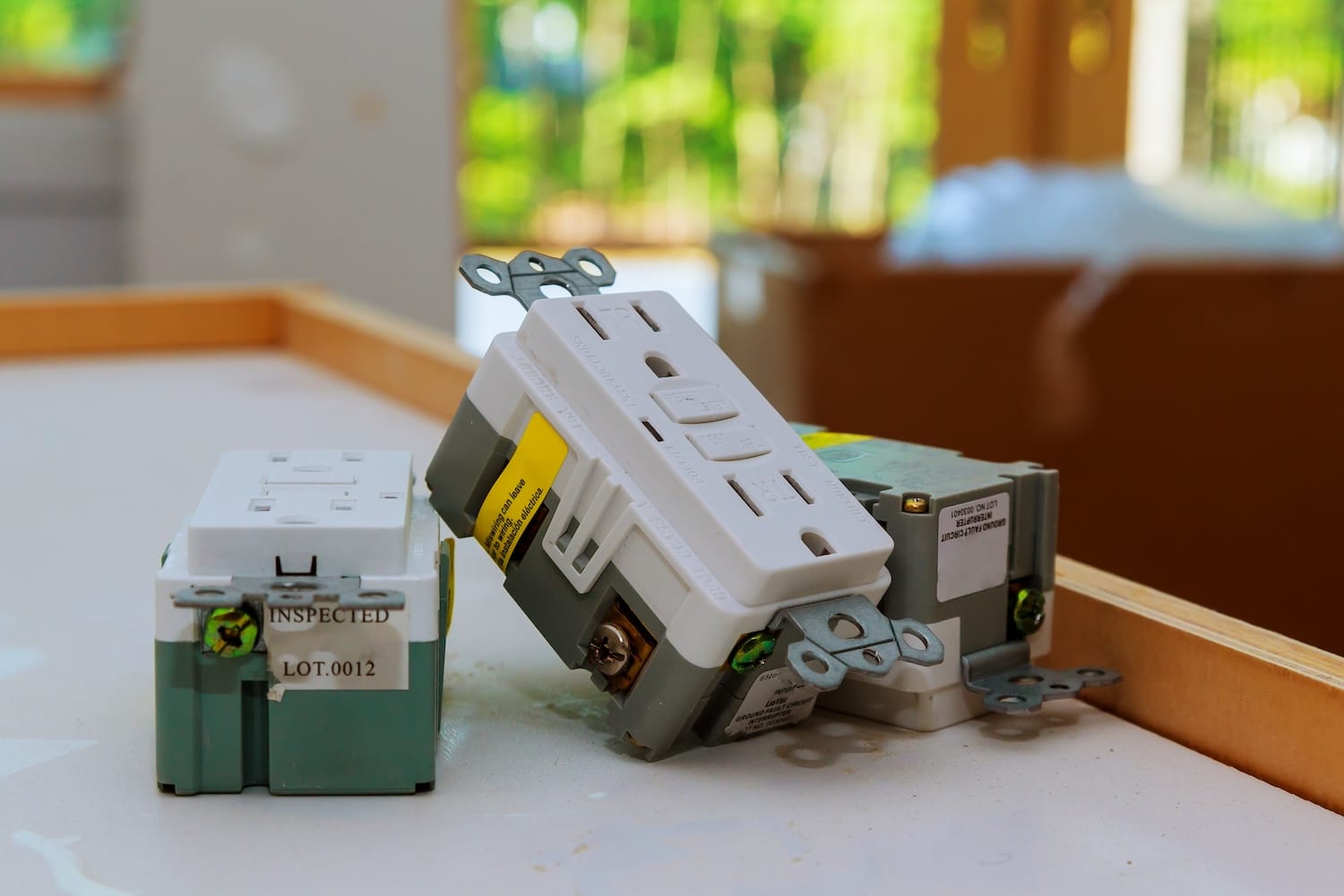
A GFCI outlet won’t reset, and now part of your home is without power. Flipping the reset button does nothing, and you’re left wondering what’s wrong. GFCI (Ground Fault Circuit Interrupter) outlets are built for safety, shutting off power when they detect an issue to reduce the risk of electrical shocks.
Its refusal to reset could mean anything from a simple fluke to a more serious wiring problem—this guide should help you identify the issue or rule out common reasons a GFCI won’t reset so you know when it’s time to bring in an expert.
How a GFCI Outlet Works
GFCI outlets are designed to cut power instantly when they detect an electrical imbalance. This prevents shocks, fires, and other hazards, making them essential in bathrooms, kitchens, garages, and outdoor spaces where water exposure is common.
Each outlet has test and reset buttons. Pressing the test button should trip the outlet, shutting off power. Pressing reset should restore it.
If the GFCI won’t reset, something is preventing it from functioning properly; let’s talk about what causes this most often.
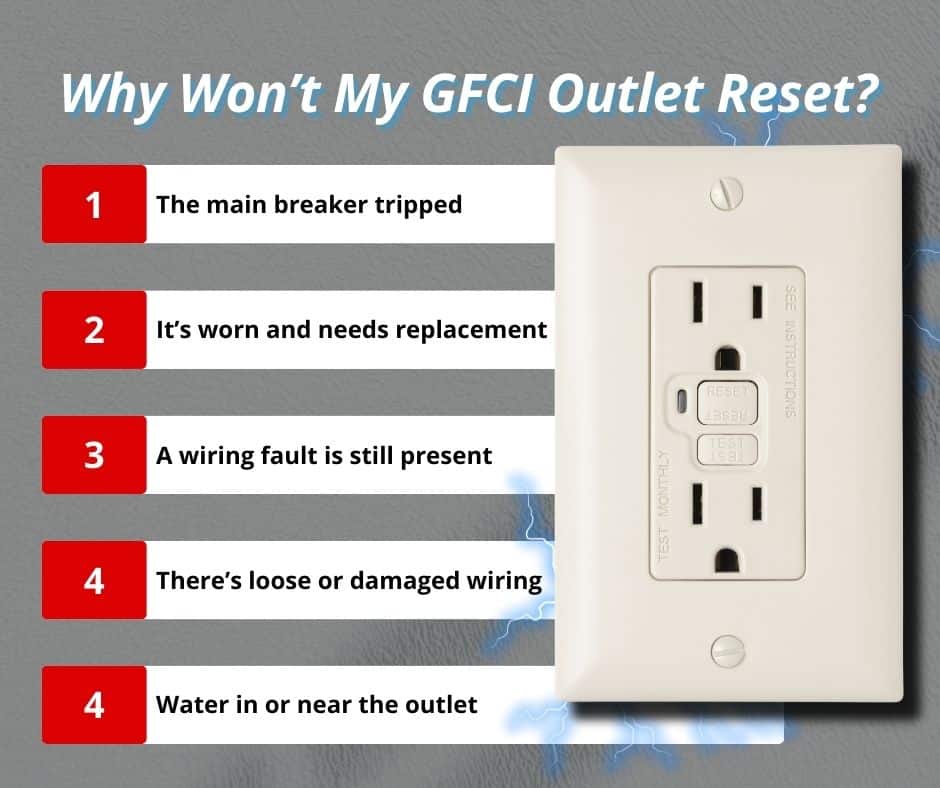
Common Reasons a GFCI Won’t Reset
- Tripped circuit breaker – If the main breaker has tripped, the GFCI won’t work until it’s reset.
- Faulty outlet – Over time, GFCI outlets wear out and may need replacement.
- Ongoing ground fault – If an appliance or wiring fault is still present, the outlet won’t reset.
- Wiring problems – Loose, damaged, or incorrectly installed wiring can prevent reset.
- Moisture or water exposure – Water inside the outlet or electrical box can trigger a safety shutdown.
Safely Troubleshooting a GFCI That Won’t Reset
Before assuming the outlet is bad or letting yourself get frustrated, try these troubleshooting steps:
- Check the breaker panel – Open your electrical panel and look for any tripped breakers. Reset them and try the GFCI again.
- Press the reset button firmly – Some outlets require more force to fully engage.
- Unplug everything on the circuit – A faulty appliance could be causing the trip. Reset the GFCI with nothing plugged in.
- Test other GFCI outlets – Some outlets are wired in a series, meaning another tripped GFCI might need resetting first.
- Look for moisture or damage – If the outlet is damp or has burn marks, it may need professional attention.
If the GFCI still won’t reset after these steps, the problem could be deeper in the electrical system.
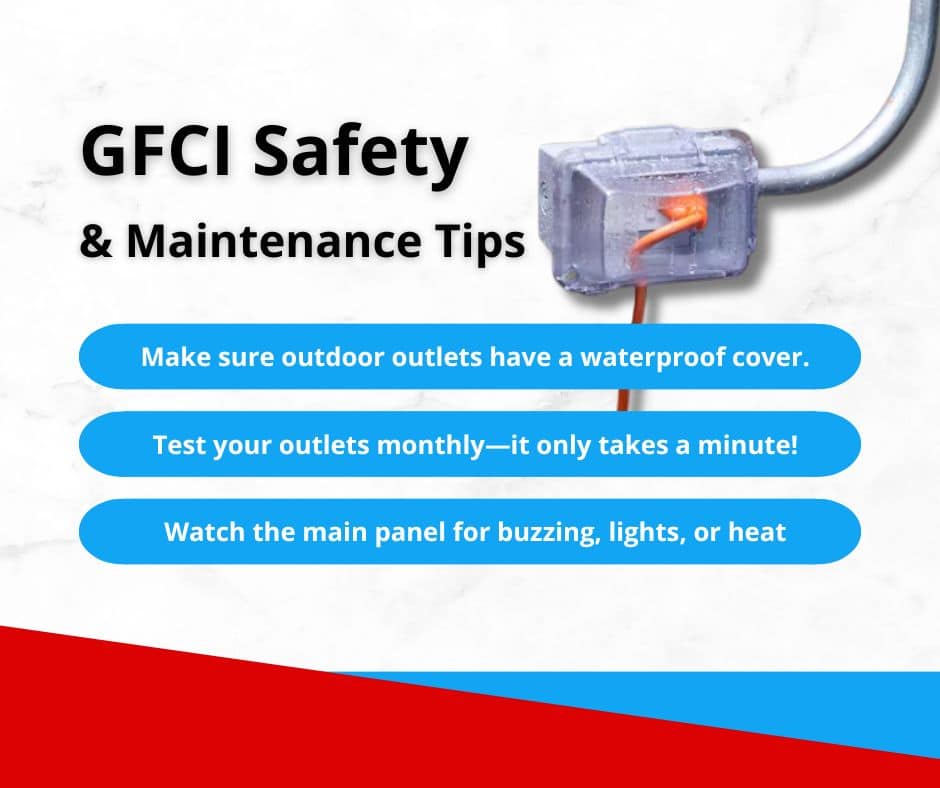
Other Safety and Maintenance Checks
A GFCI that won’t reset could be the first sign of a bigger issue. Regular maintenance can help prevent electrical failures and other home hazards:
- Test your GFCI outlets monthly – Press the test and reset buttons to confirm they’re working.
- Ensure outdoor GFCIs have weatherproof covers – Moisture exposure is a common cause of failure.
- Monitor your electrical panel – Look for flickering lights, buzzing sounds, or signs of overheating.
- Check for signs of hidden damage – Water leaks, foundation shifts, and HVAC inefficiencies can cause problems beyond the electrical system.
When to Call a Professional
If your GFCI still won’t reset, or if other electrical problems are happening at the same time, it’s best to call a professional. An expert inspection is a good idea if:
- The GFCI won’t reset after troubleshooting.
- Other outlets or appliances on the same circuit aren’t working.
- There’s a burning smell, sparks, or heat coming from the outlet or breaker box.
- The outlet keeps tripping, even after resetting.
- Your home has frequent electrical issues, outdated wiring, or flickering lights.
- You’re noticing other home concerns, like high energy bills, moisture buildup, or HVAC inefficiencies.
- You’re planning to buy or sell a home and want a full inspection to ensure everything is safe and functional.
Conclusion
A GFCI that won’t reset is often a warning sign of an electrical issue that shouldn’t be ignored. While troubleshooting can resolve simple problems, some issues require expert attention to ensure your home is safe.
Whether you’re seeing signs of something amiss, planning to sell your home, or just maintaining a house, All Coast offers professional inspections, including the electrical system, so you can identify potential problems before they become something more.

